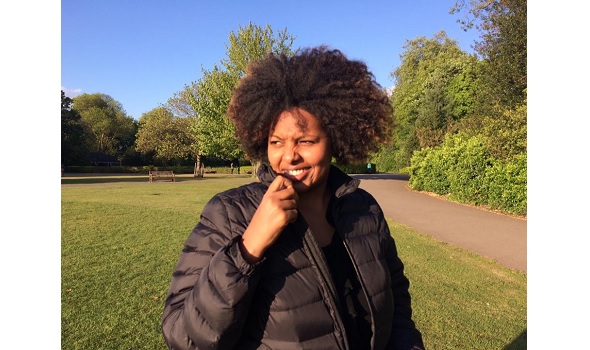A first-rate welcome: Areej’s story
A first-rate welcome: Areej’s story

When refugees or asylum seekers live together with Brits, the experience can change the lives of both for the better.
Areej knows this first hand. She’s a Sudanese refugee who came to the UK in 2015 and, after obtaining refugee status, was hosted by a young couple. It wasn’t long before they became friends and then official flatmates as the couple introduced her to their landlord and Areej rented a room in their home. She’s still there and is very happy with the situation.
“These people helped me a lot,” she says. “It’s from them that I learned the lifestyle of the UK – when to have your meals (which is completely different from what we are used to in Sudan) and many other little things.
“They introduced me to their friends, so I had people to chat with and developed new friendships. They were very caring – it was not only hosting, it was much more! I know that many hosts do the same with their guests, trying to help refugees as much as they can.”
Areej found her accommodation through Refugees at Home, a small charity that helps refugees and asylum seekers to find free temporary accommodation as guests of local people who offer them shelter and help them to settle in their new country.
For Areej, as for many of the guests, it was after being recognised as a refugee that she suddenly found herself in need of somewhere to live. In the UK, new refugees are given just 28 days to leave the accommodation they were entitled to as asylum seekers, but for most people, that isn’t enough time to find a job and somewhere to live. Charities including the Red Cross, the Refugee Council and NACCOM have been campaigning for the so-called “move-on period” to be extended and new refugees to be given more support during this time.
When Areej became homeless, she was volunteering at Westminster Council. Luckily, someone there knew about Refugees at Home and suggested that Areej contact them.
She did, and the rest is history. Soon after moving in with her hosts, she also started volunteering with the charity and later got a job there. She’s still there, working as a placement coordinator, which she loves.
“I match people in need of a place with someone having a spare room,” Areej explains. “Hosts are lovely and generous people wishing to offer a spare room to someone rather than leaving them on the street. Generally they are middle-class British, but it’s quite varied. Last week, for example, one of our first guests applied to become a host and we were all very happy about this.”
Refugees at Home was founded in Surrey in 2016 by Nine Kaye and Timothy Nathan whose children had left home to go to university and who decided to offer their spare room to refugees. The charity they founded has grown rapidly and now has dozens of hosts across England, Scotland and Wales.
Areej has witnessed so many positive changes for both the hosts and the guests involved, many of whom stay in touch with each other long after the guest has moved out and found more permanent accommodation.
“Living together, they often cook for each other, have dinner together, sometimes go to the theatre,” says Areej “Sometimes this experience can even lead to significant changes of opinion on some important issues.
“A story I particularly love is that of one of our guests who had never been in contact with gay people and wasn’t open minded on this issue. He was hosted by a gay couple, they got on very well together and he completely changed his mind. He said, ‘I have never seen loving each other that much and I enjoyed the love atmosphere in the house. That really warmed my heart!’”
It can be an equally positive experience for hosts, Areej explains. “It’s an experience that opens their minds,” she says. “They absolutely love it – once they start, they keep going.”
Despite her experiences with Refugees at Home, as a guest, a volunteer and now an employee, Areej does sometimes still feel like a stranger in the UK. She explains that it’s because of the result of the EU referendum in 2016.
“With Brexit you feel not welcome here, you feel considered as an outsider, despite you live here, work here, pay your taxes,” she says.
It has left her uncertain of her identity, uncertain if she belongs to the city that has become her home.
“I still feel a Londoner, but nowadays I have to think about it. Three years ago I had no doubts about it.”


